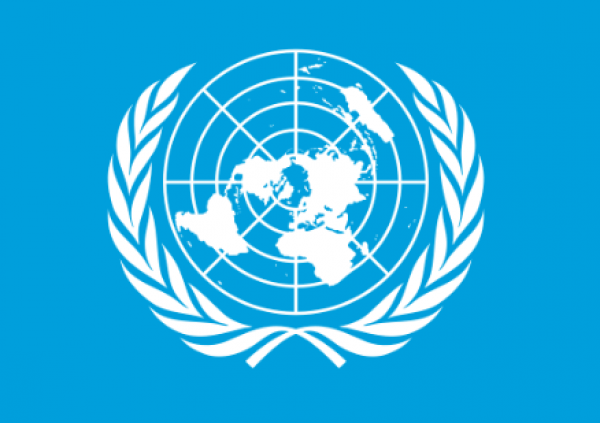Public Speaking for A Globalized World
Published 11/05/2022 in Scholar Travel Stipend
Written
by Namra Zulfiqar |
11/05/2022

In Summer 2019, I worked with the Yale International Relations Association and Pegasus-Alpha Partners Education on a cultural exchange program. Through the Model United Nations Education program in the Yale International Relations Association, we partnered with a local organization to teach middle school students from throughout China Model U.N. skills.
Most of the Chinese public and private education system focuses on standardized testing, especially in the fields of math and science, with little emphasis on the social sciences and humanities. Participation and public speaking is not stressed in the classroom, which prevents students from obtaining the skills and confidence necessary to be future successful global leaders. In order to combat this gap in a holistic and well-rounded education, the Yale International Relations Association has partnered with Pegasus-Alpha Partners Education to curate a leadership training program designed to empower students to embrace new challenges in an increasingly globalized modern world.
Pegasus takes its name from the flying horse in Greek mythology, a symbol of wisdom, inspiration and aspiration to the greatest heights of accomplishment. Its goal is to create a community that inspires and empowers its members with a sense of their potential as leaders of positive change in the world. Using Model United Nations (MUN) as the core training platform, we developed a comprehensive range of challenging, holistic learning experiences tailored to students in grades 8-10 from around China.
While designed to build global awareness and train students’ communication, analytical and cognitive skills. My curriculum focused on communication and negotiation skills, a skill crucial to successful leadership. While many kids were not accustomed to speaking in public or sharing opinions, over the course of the program, many students came out of their shells. Students were had difficulty introducing themselves at the program’s start were leading discussions and debate. For many of the students with whom we interacted, this was also the first time that they were being introduced to global social justice issues, an area with which they have little to no exposure to in their formal education system, but is crucial in understanding the modern globalized world.
While education was a main component of the experience, the program also focused greatly on cultural exchange. We often ate meals and spoke with the students outside of the classroom. While my primary role was as a teacher, I became a student as well, learning as much from the students about Chinese culture, especially in the Sichuan Province where we were staying, as they did from me. I also had the opportunity to practice Mandarin Chinese, which I haven’t had the opportunity to formally study since my study abroad program in Beijing the previous summer. I’d like to pursue a career in foreign diplomacy in the future, and a grasp of foreign languages crucial to American foreign policy is necessary. Being immersed in the language was a great opportunity to practice and challenge my skills. Most of the other teachers from American Universities did not speak Mandarin Chinese, so it felt good being able to help translate for them.
While Chengdu is a much lesser known city in China, it also had a lot to offer outside of the classroom. In one of my first days there, I went to the Chengdu Research Base of Giant Panda Breeding and had the opportunity to see a Giant Panda for the first time. I also visited Tianfu Square, a major cultural center housing the Sichuan Opera, Science and Technology Museum, and one of the largest Mao Zedong statues, standing at almost one hundred feet tall. Exploring the cultural sites gave me an opportunity to exit the classroom bubble and engage with the community. I also had the opportunity to have my ears cleaned! Sounds very weird, I understand, but its actually a very popular custom in Chengdu, where locals and tourists alike will sit for 20-30 minutes and allow a stranger to clean their ear canal. It is said to promote better health and healing.
This program aligns with the Milken Family Foundations goals of promoting education as an effective way of helping people help themselves and those around them lead
productive and satisfying lives. This program also educated me, aiding me in understanding my long-term career goals. I think that after college, I would like to continue my education, and pursue a masters or doctorate degree. After that, I’d like to work for the United States Department of State as a Foreign Service Officer, traveling and working at different embassies and consulates in the world to better understand U.S. foreign relations and engage with different cultures and communities. In the end, I’d like to utilize the knowledge I’ve gathered from those experiences, including this one, to work in the domestic national government, hopefully promoting human, social, and civil rights (including education) both domestically and internationally.
Thank you to the Milken Family Foundation and the Milken Institute for helping fund this incredible journey. My experience would not have been as colorful, and consequently as impactful, without the support I received. It is through this experience that I am able to relate to the mission of the Foundation of learning and understanding other cultures and expanding my knowledge of the world in order to be a more effective leader.

